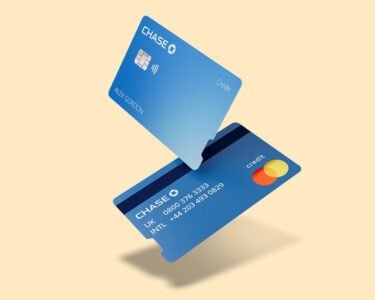Choosing the right credit card can help you maximise savings and rewards. With many options available, finding one that suits your lifestyle is more important than ever.
Rather than settling for a generic card, it is better to align your selection with how you spend. This way, you gain more value without unnecessary charges or features.
Understand Your Spending Habits
Before selecting a credit card, evaluate your monthly expenses. Track where you spend the most—be it groceries, travel, dining, shopping, or fuel. Knowing your spending pattern helps you identify which card category will reward your habits. For instance, a cashback card suits everyday purchases, while travel cards benefit frequent flyers.
If you spend more on fuel, a co-branded fuel card may offer better value. Conversely, if your spending is spread out, a general rewards card could serve you well. Regular tracking also ensures that you do not exceed your budget. Responsible use with rewards aligned to your expenses makes a credit card more beneficial than burdensome.
Compare Different Types of Credit Cards
Every credit card is designed to meet a different need. Picking the wrong type can lead to missed benefits and unwanted fees. Let’s explore the most common credit card types to help you choose one that fits your lifestyle and spending habits:
Cashback Cards
These offer direct savings by giving a percentage of your spending back. These are ideal for regular users who prefer simple value without tracking or redeeming reward points.
Rewards Cards
Every purchase earns you points, which can be redeemed for gifts, vouchers, or travel. Best for those who enjoy flexible rewards and regular redemptions.
Travel Cards
These cards provide air miles, airport lounge access, and low foreign transaction fees. A smart choice for frequent flyers looking to reduce travel costs.
Fuel Cards
Designed to save on fuel expenses, these offer surcharge waivers and petrol rewards. Suitable for daily commuters or those with regular long-distance travel.
Shopping and Lifestyle Cards
These cards give exclusive discounts on online shopping, dining, or entertainment. Perfect for users who frequently spend on lifestyle and e-commerce platforms.
Look at the Key Features and Benefits
Each card comes with its own set of features. Understanding these helps you avoid unpleasant surprises and maximise gains:
Annual and Joining Fees
Such costs vary widely. Some cards are free for life, while others waive fees based on annual spending thresholds. Always check this before applying.
Reward Systems
These differ by provider. Some offer accelerated rewards on specific categories, while others have flat rates. Choose what fits your usage best.
Interest-free Periods
Such periods allow you to pay your bill without interest, often up to 45 or 50 days. Paying in full during this period saves you interest.
Credit Limits
Credit limits depend on income and credit score. A higher limit offers flexibility but should be used responsibly to maintain a good credit profile.
Partner Offers
Partner offers can include discounts on shopping, food, entertainment, or travel. Evaluate how often you’ll actually use these deals before considering them a benefit.
Evaluate Eligibility and Approval Criteria
Each credit card has specific eligibility requirements. Understanding them improves your chances of getting approved without hurting your credit score. Most issuers require you to be at least 18 years old with a steady income. Salaried and self-employed applicants often have different minimum income criteria.
A good credit score, usually 700 or above, improves approval odds. A higher score may also help you get cards with better benefits or lower interest rates. Some cards are tailored for beginners or students, while others are meant for high-income earners. Choose a card that aligns with your current profile.
Applying for multiple cards simultaneously can affect your score. It is better to check eligibility online and apply selectively to avoid rejections.
Check Fees, Charges, and Hidden Costs
Beyond rewards and benefits, it is crucial to examine the full cost of owning the card. Ignoring this can lead to unwanted financial burdens. Late payment charges are applied if the due amount is not paid on time. These can be high and also negatively impact your credit rating.
Foreign transaction fees apply when you use the card abroad or for international payments. Travel cards often waive or lower these charges. Over-limit penalties are imposed when you exceed your credit limit. Always keep track of your outstanding balance to avoid these fees. Cash withdrawal charges apply even within the limit and often attract immediate interest.
Credit cards are not ideal for frequent cash usage. Review the terms and conditions to check if offers come with spending conditions. Some benefits only apply after reaching a minimum transaction value.
Match Card Benefits to Your Lifestyle
No card is one-size-fits-all. Match your card’s core benefits with how you live and spend to get the most value out of it. If you travel frequently, a card with free lounge access, travel insurance, or air miles will save you more than a basic rewards card.
If you’re a frequent online shopper, cards with e-commerce partnerships or EMI offers will make purchases more affordable and rewarding. Fuel credit cards are best for those with long daily commutes or regular car usage. They help reduce your monthly fuel expenditure significantly.
Students or budget-conscious professionals may benefit from lifetime-free cards with basic rewards and zero joining fees. Choose what simplifies your financial life.
Explore Exclusive Offers and Discounts
Card issuers often tie up with leading brands to offer special privileges. These limited-time deals can greatly enhance the value you receive. You may receive instant discounts on food, travel, fashion, or electronics when you pay with specific cards. These can reduce your actual expenses significantly.
Some cards offer EMI conversion on large purchases. This spreads payments and reduces monthly stress, especially during festive sales or emergency spends. Look for cards that offer seasonal offers or additional cashback during sales periods. The more relevant the offer, the higher your savings.
Don’t forget to activate these deals through issuer apps or platforms. Many discounts require opting in or selecting specific merchant categories.
Read Reviews and Compare Providers
Real experiences provide insights that brochures don’t. Reading reviews helps you understand what to expect in terms of service and support. Look for cardholder feedback on billing accuracy, mobile app ease-of-use, reward redemption processes, and customer support responsiveness.
Compare cards from multiple issuers before applying. Use online comparison tools to filter cards based on fees, features, or lifestyle compatibility. Also ensure the card is from a reputed provider with good grievance redressal and fraud protection because safety is equally important as features.
Conclusion
Choosing a credit card should be a thoughtful process. Match features with your lifestyle to ensure the card works for you—not the other way around.
Take time to assess your spending, benefits, and fees. With the right choice, a credit card becomes a smart financial tool, not a liability.
FAQs
1. How do I know which credit card suits my lifestyle best?
Start by analysing your monthly spending. Choose a card that offers rewards, cashback, or discounts in the categories you spend most—like travel, fuel, dining, or shopping.
2. Are lifetime-free credit cards really free?
Lifetime-free cards have no annual or joining fees, but other charges may apply. Always read the terms to check for interest rates, late fees, and conditions.
3. Can I own more than one credit card?
Yes, you can. Many people use multiple cards for different needs—travel, fuel, or shopping. Just ensure timely repayments to maintain your credit score.
4. Does applying for multiple cards affect my credit score?
Yes, multiple applications within a short time can lower your credit score. Always check eligibility before applying to avoid unnecessary rejections or hard enquiries.
5. What is the difference between rewards and cashback cards?
Rewards cards offer points you can redeem later, while cashback cards give you instant savings. Choose based on whether you prefer flexibility or immediate benefits.
Note to the Reader: This article is part of Mint’s promotional consumer connect initiative and is independently created by the brand. Mint assumes no editorial responsibility for the content.




